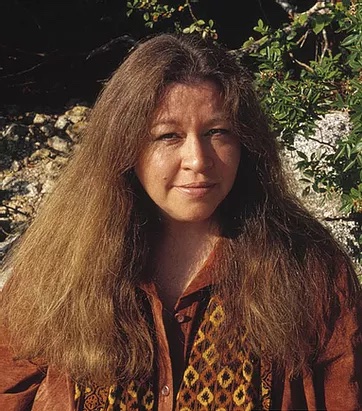On March 22, filmmaker, storyteller, and arts advocate Catherine Martin joined faculty, friends, and students on Zoom. The talk was the fourth event in the Counter Memory Activism Speaker Series, a project which addresses the limits and possibilities of memory as a site for research, art creation, curation, and discussion. A collaborative effort led by NSCAD and University of King’s College, the speaker series draws from a local and international collection of artists, writers, academics, students, and curators.
 Catherine Martin has received acclaim for her documentary filmmaking, arts advocacy, and participation in the Nova Scotian arts scene. Throughout her long career she has produced a prodigious body of work, for which she has been recognized as the first Mi’kmaw filmmaker in the Atlantic region. Martin, who currently serves on the King’s Board of Governors, has dedicated much of her artistic and educational work to documenting the rich artistic and narrative tradition of Mi’kmaq cultures. Her early films with the National Film Board, and later with her production company, Matues Productions, have been devoted to telling stories from Mi’kmaw communities, including her own home, the Millbrook Mi’kmaq community.
Catherine Martin has received acclaim for her documentary filmmaking, arts advocacy, and participation in the Nova Scotian arts scene. Throughout her long career she has produced a prodigious body of work, for which she has been recognized as the first Mi’kmaw filmmaker in the Atlantic region. Martin, who currently serves on the King’s Board of Governors, has dedicated much of her artistic and educational work to documenting the rich artistic and narrative tradition of Mi’kmaq cultures. Her early films with the National Film Board, and later with her production company, Matues Productions, have been devoted to telling stories from Mi’kmaw communities, including her own home, the Millbrook Mi’kmaq community.
To begin, Martin performed a song which she had learned from the late knowledge keeper Sarah Denny—a performance which only a generation ago, she noted, would have been a violation of federal law. She reminded the audience of a moment well within living memory, in which speaking Mi’kmawi’simk, performing cultural ceremonies, and organizing collective action were criminalized under the Indian Act. At this time, to pass on stories, craft, and language between generations was to challenge the agenda of cultural genocide imposed by the Canadian government.
The desire to share stories from her community in the face of this history is a great part of what drives Martin to continue making film. She emphasizes the continuing necessity of storytelling. “Without access to one’s history and language, making films about our history is very challenging,” she states. “You do not have access to a photographic, visual, written tradition which was made by the community, as it was not safe to do so.”
Telling and retelling stories across generations, Martin reminds us, builds and supports a collective cultural memory which can thrive regardless of access to photography, film, or written histories. She recalls, while working on an exhibit of photos taken in Mi’kmaw communities in the early 20th century, witnessing the capacity of storytelling to keep the past alive. Bringing some of the photographs back to the communities where they were taken, Martin saw the descendants of the subjects identifying their ancestors based on years of hearing their communities’ oral histories.
“By using the oral histories carried on by the elders they were able to fill in entire stories, houses, faces, all from memory and storytelling. Collective memory reanimated the stories of those who had died long ago but continued to live through the connection to community generated by oral histories.”
Catherine Martin’s work has continued to weave together the stories of the past and the present, continuing the practice of knowledge keeping learned from those who came before her.
Isabel Teramura is a fourth-year student studying history and Contemporary Studies.

